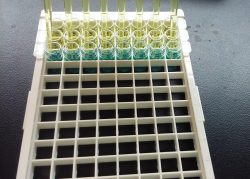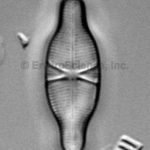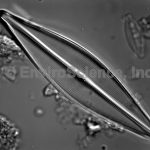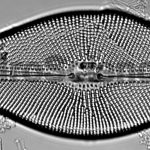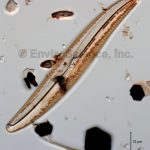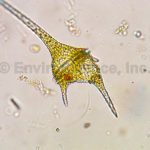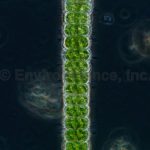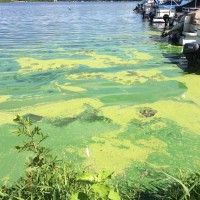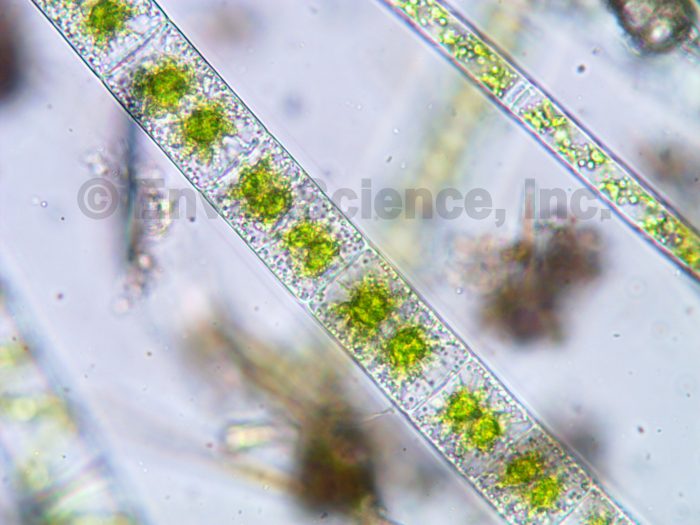
Green Algae – Zygnema
EnviroScience has over 30 years of experience working with algae to provide algae identification, analysis, and lab services and is approved by the Ohio Environmental Protection Agency (EPA) for Total Microcystin Testing for drinking water (Extracellular and Intracellular Microcystins- ADDA by ELISA Analytical Methodology, Version 2.2, November 2015, Ohio EPA DES 701.0).
Algae play an integral role in the environment, contributing to a majority of the primary productivity in waterbodies. Based on the species assemblage, it’s possible to tell if the ecosystem is in balance. In some cases, too much primary productivity can produce deleterious effects (i.e., Harmful Algal Blooms or HABs). EnviroScience has the capabilities and resources to promptly address your water quality concerns by analyzing microcystin samples.
EnviroScience provides identification, enumeration, biovolume measurements, and photo-documentation services for marine and freshwater environments using EPA and other standard methods. Our highly experienced phytoplankton and periphyton taxonomists, coupled with our state-of-the-art microscopy equipment and software, ensure accuracy and taxonomic consistency.
We offer:
- Phytoplankton Analysis
- Periphyton Analysis
- Algal Toxin Screening & Analysis
- Photomicroscopy
- Zooplankton Analysis
- Chl-α Analysis
- Diatom Slide Preparation
- Field Sampling
Algae Identification
Phytoplankton Analysis
Phytoplankton, unlike periphyton, are comprised of algae in the open water column. Based on species assemblages, samples can provide insight into waterbody health. Routine phytoplankton monitoring is also important as a means of screening for potentially toxic Harmful Algal Blooms (HABs).
Periphyton Analysis
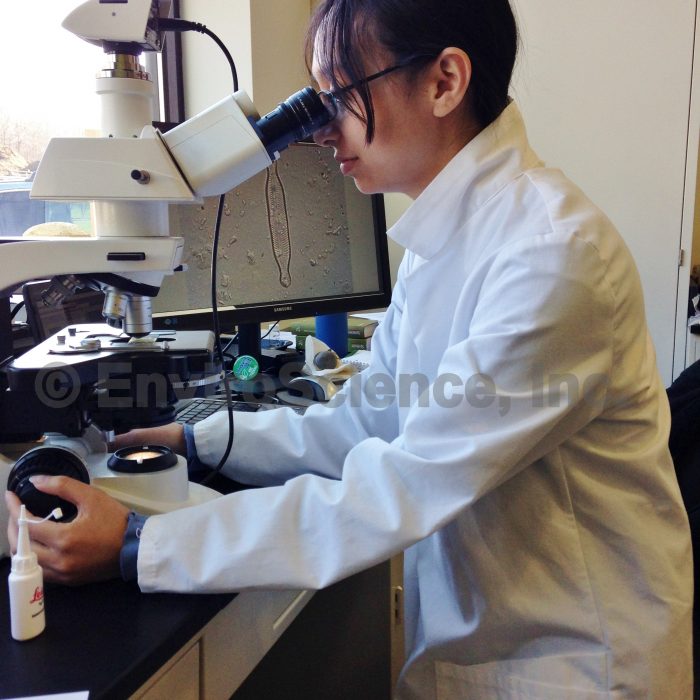
Algae Identification
Periphyton is a combined sample of algae and other microbes attached to submerged aquatic vegetation along the benthos. Typically comprised of both diatoms and soft-bodied algae, periphyton can be a great indicator of physical, chemical, and biological changes in an aquatic ecosystem.
EnviroScience has experience with both large and smaller targeted periphyton monitoring projects. Sampling and Identification follow current U.S. Environmental Protection Agency (USEPA) procedures.
At EnviroScience, our experienced team of taxonomists use current USEPA and U.S. Coast Guard (USGS) procedures to catalog all species and have the ability to perform protocols specific to our client’s needs.
Algal Toxin Screening & Analysis
EnviroScience maintains a team that is highly qualified and knowledgeable about Cyanobacteria and other algae that cause Harmful Algal Blooms (HABs). Our experience lies not only in identification by morphology through the microscope but also in the thousands of individual ELISA cyanotoxin tests performed at our laboratory. This includes our work for both private and public entities—most notably the USEPA and the toxin testing our technicians performed through the National Aquatic Resources Surveys (NARS).
In addition to our technical capabilities, we have extensive experience in the many issues that arise from harmful algal blooms in both drinking water supplies and recreational use waters. In understanding these issues, we can offer unique services to clients as they move through a complex regulatory landscape. The State of Ohio has experienced many harmful algal blooms recently.
The occurrence of harmful algal blooms is expected to continue or increase, and as such, Ohio has forged ahead with drinking water and recreational use regulations. Our familiarity with these regulations has allowed us to expand our knowledge and share that with clients outside of Ohio or those that are unfamiliar with what is required for compliance in Ohio. No harmful algal bloom is too small to be a concern.
Please contact our Algae Lab located in Stow, Ohio, at 330.688.0111 if you have any questions or concerns.
Zooplankton Analysis
Zooplankton are small organisms that drift in open water and in freshwater, largely including copepods (small crustaceans) and rotifers. They serve as both consumers of algae and other smaller zooplankton and as a food source for larger organisms, such as insects and fish.
Zooplankton are ideal indicators of water quality, given their unique position in the food chain. Species’ density and composition can respond rapidly to environmental changes such as nutrient enrichment, toxic conditions brought by algal blooms, the introduction of invasive fish, and other influences. For example, a greater ratio of copepod to calanoid microcrustaceans may indicate eutrophication. Or, an overabundance of the smallest taxa compared to larger species can result from substantial fish predation.
Photo Database/Photomicroscopy
Analyses wouldn’t be complete without proper photo documentation. EnviroScience Algae Lab services can provide high-resolution photomicrographs of species encountered upon request. All photos are taken with state-of-the-art cameras and software provided by Olympus and Leica.
- Diatom – Capartogramma crucicula test description of project summary and what enviroscience did for the clitn
- Diatom – Craticula cuspidata
- Diatom – Didymosphenia geminata
- Diatom – Gyrosigma reimeri
- Dinoflagellate – Ceratium hirundinella
- Green Algae – Desmidium aequale
Lab Services
Chl-α Analysis
Chlorophyll-α, the photosynthetic green pigment found in algae, cyanobacteria (and higher plants), can be extracted and measured as a proxy for productivity or biomass in a water body. The EnviroScience lab utilizes standard USEPA procedures for measuring Chlorophyll-a. Field sampling for Chl-α is available upon request.
Diatom Slide Preparation
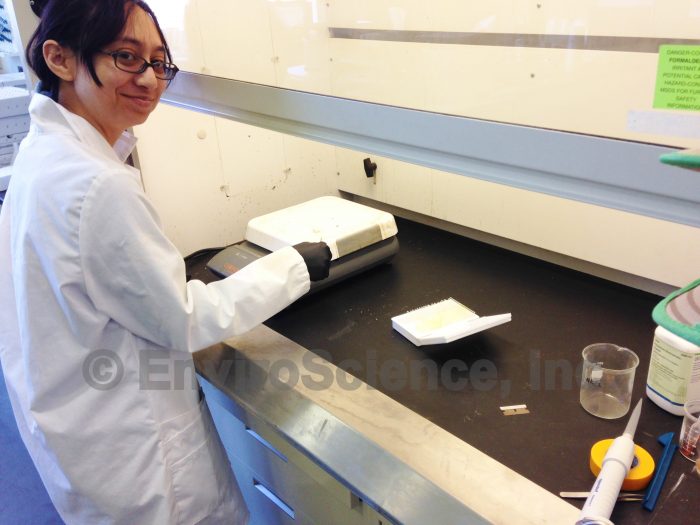
Diatom Slide Preparation
Diatoms are single-cellular, photosynthetic organisms that have siliceous outer “skeletons” called frustules or valves. Frustules are intricately ornate and must be boiled and fixed for identification at very high magnification.
Furthermore, diatoms are sensitive to a wide range of environmental conditions. Metrics have been developed that infer water-quality conditions from diatom species assemblages.
Diatoms are processed by boiling away organic matter in a sample with nitric acid. Cleaned samples are then dried on coverslips and mounted on slides using a medium with a high refractive index, such as Naphrax. This allows for accurate species-level identification.
Field Sampling
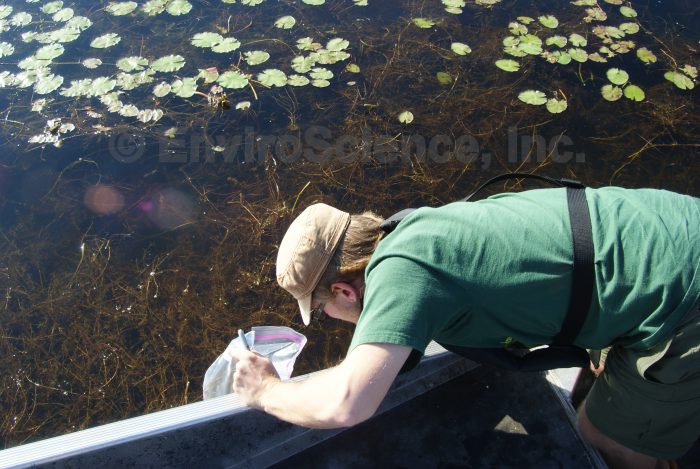
Field Sampling
EnviroScience provides an array of sampling for clients of all sizes in many different environments using a variety of standard sampling methods.
In addition, we can provide unique sampling protocols, training, assistance, or materials based on the client’s needs.
Need help with your project?
Our experts are here to discuss your needs and how we can help you move your project forward. Fill out the form below for more information on our services or to request a quote, and we’ll get back to you within 24 hours. If you need a response within an hour or less, please call us at 800-940-4025.
Few environmental firms in the country retain EnviroScience’s degree of scientific know-how, talent, and capability under one roof. The diverse backgrounds of our biologists, environmental engineers, scientists, and divers enable us to provide comprehensive in-house services and an integrated approach to solving environmental challenges—saving clients time, reducing costs, and ensuring high-quality results.
Our client guarantee is to provide “Excellence in Any Environment,” meaning no matter what we do, we will deliver on our Core Values of respect, client advocacy, quality work, accountability, teamwork, and safety. EnviroScience was created with the concept that we could solve complex problems by empowering great people. This concept still holds true today as our scientists explore the latest environmental legislation and regulations and incorporate the most up-to-date technology to gather and report data.
EnviroScience expertise includes but is not limited to aquatic surveys (including macroinvertebrate surveys and biological assessments); ecological restoration; ecological services (including impact assessments, invasive species control, and water quality monitoring); emergency response; engineering and compliance services; endangered mussel surveys; laboratory and analysis; stormwater management; sustainability services; threatened and endangered species; and wetlands and streams (including delineation and mitigation). Further, EnviroScience is one of the few biological firms in the country that is a general member of the Association of Diving Contractors International (ADCI) and offers full-service commercial diving services.



